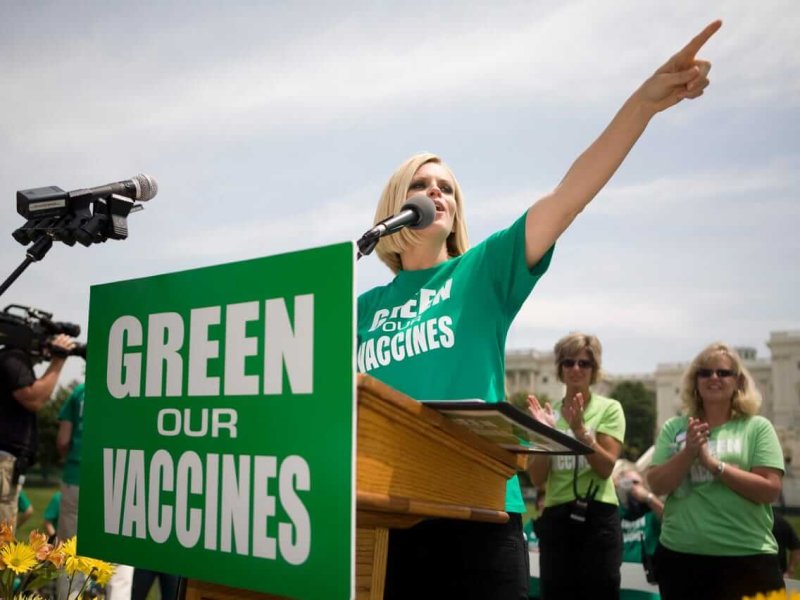Many of you will remember when, in 2007, actress and former Playboy model Jenny McCarthy published her book Louder Than Words, which attributed her son’s autism to vaccines… McCarthy became the face of the anti-vaccination movement, and the subsequent rise in vaccine hesitancy has been called “The Jenny McCarthy Effect.”
…
A report in Jezebel outlined how [her anti-vaxx organization Generation Rescue] was criticized for promoting unsubstantiated treatments for autism—including raw camel’s milk, CBD oil, and hyperbaric oxygen.
…
This story of the rich and famous suggests they have no particular grip on science—but do they influence others?
…
[O]ne study found the effects of celebrity political endorsements depended upon how much the celebrity was liked (Nownes 2012). After finding that a disliked celebrity endorsed a political party, respondents reported a diminished view of the party. Conversely, an admired celebrity improved attitudes toward the party the celebrity endorsed.
[S]cience-minded people can take some small comfort from research showing the limited influence of celebrity.
My final recommendation: if you want to listen to celebrities, pick ones who gained their fame by being trusted spokespeople who know what they’re talking about.
































